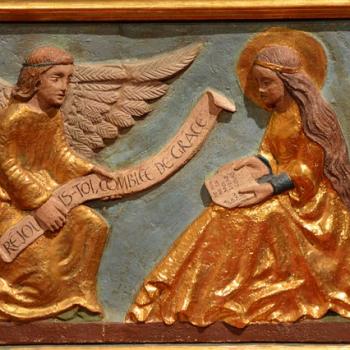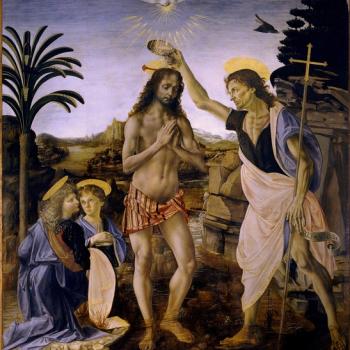
Among the world’s religions, Catholicism is unique for its profession in that God became a human being, died by crucifixion, and was resurrected. The reasons for these events are irrevocably connected to the salvation of the human race. God became man in the person of Jesus so as to reconcile God and man, to join what had been sundered by original sin. Jesus’s death was payment owed to God for the debt incurred by original sin.
But what about the Resurrection? What purpose(s), if any, did Jesus rising from the dead accomplish?
In this paper, I will discuss five reasons that can be attributed to why the Resurrection took place. Before commencing with that, however, it is appropriate to discuss what is meant by resurrection and its place in religion.
It was said above that Catholicism asserts that Jesus of Nazareth, as God incarnate, was resurrected. Yet the belief in resurrection was not unknown in the ancient world and in its mythology.
Perhaps the most emblematic of the ancient resurrection mythologies involve the Mesopotamian gods, Ishtar and Tammuz. Every winter, Tammuz would die, and for six months, Ishtar traveled to the realm of the dead to rescue him. During that time, the world was robbed of all fertility, reproduction, and growth. Every spring, Allatu, the goddess of the underworld, would allow the imprisoned couple to be sprinkled with the Water of Life and return to the world of the living, bringing life and green vegetation back to the earth. Of course, none of the parties mentioned, Ishtar, Tammuz, or Allatu, were historical figures, and the myth clearly represents the agricultural growth cycles.
Resurrection was certainly not an unknown concept among the Old Testament peoples either, and the resurrection of the dead is a core doctrine of traditional Jewish theology. Within Jewish eschatology, the belief that when the Temple Mount is rebuilt for the third time, the Messiah will come, and the bodies of the dead will be brought back to life and reunited with their souls is foundational.
All this is to point out that the people of Jesus’ time would have been familiar with the concept of resurrection. We see evidence of this knowledge in Martha’s conversation with Jesus after her brother’s death. “Jesus said to her [Martha], ‘Your brother will rise.’ Martha said to him, ‘I know he will rise in the resurrection on the last day.” (See John 11:23).
But does the Resurrection of Christ have any particular effects, whether theologically in terms of a greater understanding of God or regarding soteriology? Moreover, is the Resurrection necessary for our salvation?
The first reason why the Resurrection was appropriate was for the recognition of Divine justice. One aspect of Divine justice is the exaltation of those who humble themselves for God. Scripture provides several examples of this, including Jesus’s own words. “Whoever wishes to be great among you shall be your servant; whoever wishes to be first among you shall be your slave. Just so, the Son of Man did not come to be served but to serve and to give his life as a ransom for many.” (See Matthew 20:26-28).
Since Christ humbled Himself even to death on the Cross, it is appropriate that He should be lifted up to God by virtue of a glorious Resurrection.
The second reason we may apply to the need for the Resurrection is that it provides proof positive that Jesus is who He says, that is, God. It has long been suggested that Christianity would have become one more historical curiosity if Christ had not risen. Indeed, without the Resurrection, Jesus would likely have been considered along with Simon bar Kokhba, a Jewish revolutionary whom the Romans killed. There are no followers of Simon bar Kokhba; there are some two billion Christians who proclaim to be followers of Christ. It is because Jesus rose from the dead that the belief in His divinity was solidified.
The third reason to consider for the Resurrection is that Christ has defeated sin and its consequence, death. In dying on the Cross, “He himself bore our sins in his body upon the cross, so that, free from sin, we might live for righteousness.” (1 Peter 2:24). Additionally, the Resurrection provides hope for our eternal life. Saint Paul puts it this way, “If there is no resurrection of the dead, then neither has Christ been raised. And if Christ has not been raised, then empty [too] is our preaching; empty, too, your faith.” (1 Corinthians 15:13-14).
The fourth reason we may apply for the Resurrection is that it allowed for the coming of the Holy Spirit. Not only does the Holy Spirit enable God to work in and through the believer, but He also makes possible the creation and continued existence of the Catholic Church. This is the meaning of Christ’s words, at least in part. “But I tell you the truth, it is better for you that I go. For if I do not go, the Advocate [i.e., the Holy Spirit] will not come to you. But if I go, I will send him to you.” (See John 16:7).
The fifth and final reason for the Resurrection is the completion of the work of salvation. In addition to again demonstrating Himself to be God, the Resurrection completes the mystery of our salvation and redemption; by His death, Christ freed us from sin, and by His Resurrection, He restored the most important privileges lost by sin. The justification lost by original sin is made possible again through the Resurrection of Christ (see Romans 4:25).
A foundational belief of the Catholic faith is in the God who became a human being, died for our sins, and was resurrected. In this paper, I have endeavored to articulate five reasons why the Resurrection of Christ is paramount to Catholicism.

















